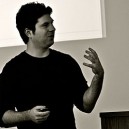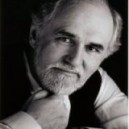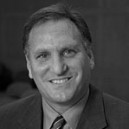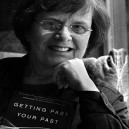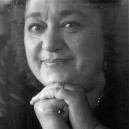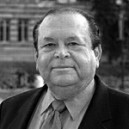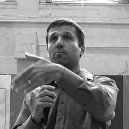Dr. Joanne Broder Sumerson
Media Psychologist
 When speaking about the influence of technology and media on society, we tend to look at the positive effects and how technology has made things convenient and our lives easier, as both an information and communication platform. But, it would be shortsighted only to talk about the many positive aspects of media and technology on our behavior, without also mentioning the potential problems with overindulgence. Is it possible there really can be too much of a good thing? Is it possible we are so engrossed in technology we don’t even realize we are engrossed?
When speaking about the influence of technology and media on society, we tend to look at the positive effects and how technology has made things convenient and our lives easier, as both an information and communication platform. But, it would be shortsighted only to talk about the many positive aspects of media and technology on our behavior, without also mentioning the potential problems with overindulgence. Is it possible there really can be too much of a good thing? Is it possible we are so engrossed in technology we don’t even realize we are engrossed?
Joanne Broder Sumerson, PhD, examines how media influences behavior – for better or for worse. She speaks to the need for guidelines and the consequences of overuse.
Dr. Sumerson is the new President-Elect: Society for Media Psychology and Technology of the American Psychological Association (APA), and has over 20 years of experience as a practitioner. She is the co-founding editor of Psychology of Popular Media Culture, an affiliate professor at Joseph's University, and author of the book, Finish Your Dissertation, Don't Let it Finish You.
Dr. Sumerson, you are the new President-elect for Div. 46, Society for Media Psychology and Technology of the APA – congratulations! What does this responsibility mean to you?
First, it is an honor to have been nominated to be President of the Society for Media Psychology and Technology by my colleagues. This responsibility gives me the opportunity to maintain the integrity of the Society as a prominent resource for media-related research and practice, to the public and for professionals.
Do you have specific goals for the next year as President-elect?
- My main presidential goal is to create a task force on Device Management that establishes guidelines (i.e., how much use is too much?) and provide resources for issues related to excessive technology use.
- Our division also does a lot of cool stuff with technology for our members. We offer webinars, and we are also currently piloting a Virtual Social Hour. We want to serve as a resource for other divisions that may want to implement the same programs. We are staying connected despite the physical distances of our membership.
You mentioned you want to collaborate with the APA for device management? Can you please explain?
While, the evolution of technology has improved our lives significantly, the downside is excessiveness to the point where relationships and quality of life are compromised. In many ways, technology has become a societal complaint, concern, and a joke (e.g., “oh look, this coffee shop does not have wifi, so we can talk to each other, how funny”). Thus, resources must be made available to help people who need help creating a healthy technological balance in their lives.
How have people’s attitudes toward media (video gaming, TV, the Internet, social media) shifted or changed over the past 10-years? How has this influenced the field of media psychology?
In the last ten years, social media has become a real game-changer. Not only did it increase the number of people who use technology, but social media participation, or lack there of, created a whole new set of constructs, phenomenon, issues, and dynamics. For instance, through social media use we experience emotions and maintain relationships that would not be possible without it. For instance, now we can watch our friend’s and family’s children grow even though they are geographically far away, as well as know exactly what our favorite celebrity ate for breakfast that morning.
Learn more about becoming a media psychologist and a media psychology degree.
Is there anything else you’d like to mention or elaborate on regarding this field?
Technology makes the world smaller. Just think, we get to maintain relationships with people and visit our favorite places all around the world from the palm of our hand.
Tell us about yourself.
I hold a doctorate (2004) in Education Psychology. While in my doctoral program, I was appointed Associate Director of the Temple Training and Development Center. My next position was in the Office of Research and Evaluation at the School District of Philadelphia. While working full time, I moonlighted as a part time professor and continued to acquire consulting clients. As much as I enjoyed my position in the Research Office, I came to realize that my "dream job" would be to work for myself doing what I love to do: conduct research, as well as help people conduct and learn from research.
In my consultation practice, I help individuals, groups, and organizations reach their maximum potential through the use of relevant data. As a research psychologist, I am very passionate and committed to bridging the gap between research and reality. As a consultant, I work with a multitude of organizations, and I understand that research is research, regardless of whether it is for a dissertation, program evaluation, research study, or consultation project. I have consulted with many individuals and team clients to help them listen and learn from their data.
[Division 46, Media Psychology and Technology of the APA was founded in the 1980s to bring scholars, researchers, practitioners, and clinicians together to understand the implications of mediated communications and the increasing integration of media technologies across society. In 2012, the Media Psychology Division (46) became the APA Society for Media Psychology and Technology.]
















